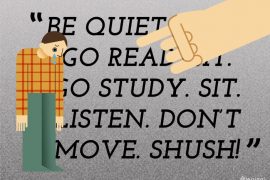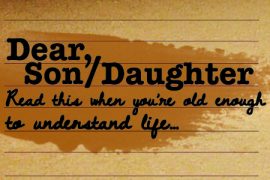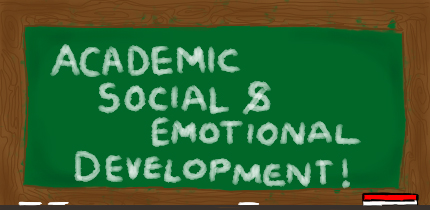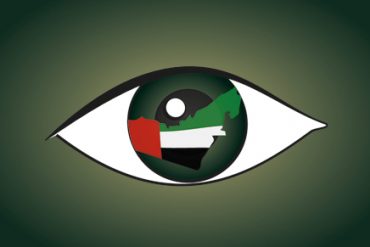Words can hurt more than sticks and stones. Criticism, degradation, negative comments, labeling and calling children with insulting names can damage their self-esteem and have negative effects on their confidence and future well-being. Some children experience long terrible emotional pain from their parents, relatives and people in their environment during their childhood phase in which their self-confidence and self-esteem get damaged. As a result, during adulthood, these negative elements are reflected in their unbalanced personalities and behaviours.
It is evident that many children due to being neglected or abused during their childhood; they are full of frustration and are like a volcano ready to erupt against their parents and surrounding people. Any horrifying experience in their life would work as an explosion of the hidden volcano of frustration.
As stated in my previous article “Protect Your Child from Abuse”, some parents are quite well aware of dealing with their child’s physical and sexual abuse. However they don’t give ample importance towards the verbal abuse, which could also be one of the causes to damaging child’s self image and respect. Frequent attacks through harsh and foul words could destroy child’s self esteem and could result in damaging the architecture of their brain, which dovetails damage with their personality in the long run.
There are different types of abusive words and phrases used by parents to verbally abuse their children directly such as losers, stupid, etc; or indirectly by use of sarcastic words, teasing or putting them down. Repetitive use of such words and actions actually belittles children and lowers their morale. If children complain of this act to their parents they flatly reply “You know I was just kidding”.
Maha, 25, had the external appearance of a confident woman. However, it was noticed that when she speaks, her voice is so low that it could barely be heard. She is always apprehensive of her excessive shyness particularly when speaking in public. Apparently, the underlying cause was her father’s constant teasing, the most humiliating part for her was when he made the family members laugh at her. This is the time she felt the need to hide herself deep down cause she felt so offended and isolated.
Maha, like any young child couldn’t distinguish the truth from a harsh joke. Positive humor is one of our most valuable tools for strengthening family bonds. But humor that belittles can be extremely damaging within the family.
Other parents are high achievers; they pressure and overburden their children with their high expectations and perfectionism, that by itself is a trigger for severe verbal attack. They have the illusion that if children were successful, that implies that the family is perfect, neglecting the concept that it’s good to make mistakes and discover the world. Sadly, such parents have homes filled with stress and anxiety.
Pushing children so hard toward perfectionism makes them collapse and buckle in the face of challenges. Somewhere inside some adults lies a small, frightened and anxious child that is still alive and that is because of their parents’ high demands of perfectionism. You’ll find them getting into the vicious cycle of: Perfectionism-Procrastination-Paralysis whenever they have large projects.
Sara, 18, who was in her first year in college, had problems in her projects’ deadlines. Sara was shy, unsure of her abilities and lacks in her attention span. She always missed her deadlines and she was about to jeopardize her whole future. When Sara was in school, her mother always pressurized her to get full marks in her exams comparing her with other children of her age. She wanted Sara to be perfect – Perfectionism. Sara’s fear of not having high marks made her postpone her exams revision – Procrastination. The more she postponed, the more she was filled with fear and that what made her unable to study – Paralysis. It is very important to understand that children need to be compared with their own progress and performance and not with the progress of any other child of his/her own age, neither their siblings.
Many adults have their lives controlled by patterns set during their childhood. Some of them have mental disorders and unbalanced personalities and such disorder’s underlying causes are emotional abuse or over protection. Apparently, it depends on the plant of mental and emotional seeds the parents planted in their children’s early years that grow as they get older. Some seeds are of love, respect, independence and other are of fear, obligation and guilt. If you want children to grow up into the best possible versions of themselves, it’s crucial to replace damaging words in your vocabulary with alternatives that help build character and constructive brain development.
Written by Ayesha Al Janahi and supported by Arabian Child organization. Visit www.arabianchild.org for more information about early childhood education in the United Arab Emirates.




